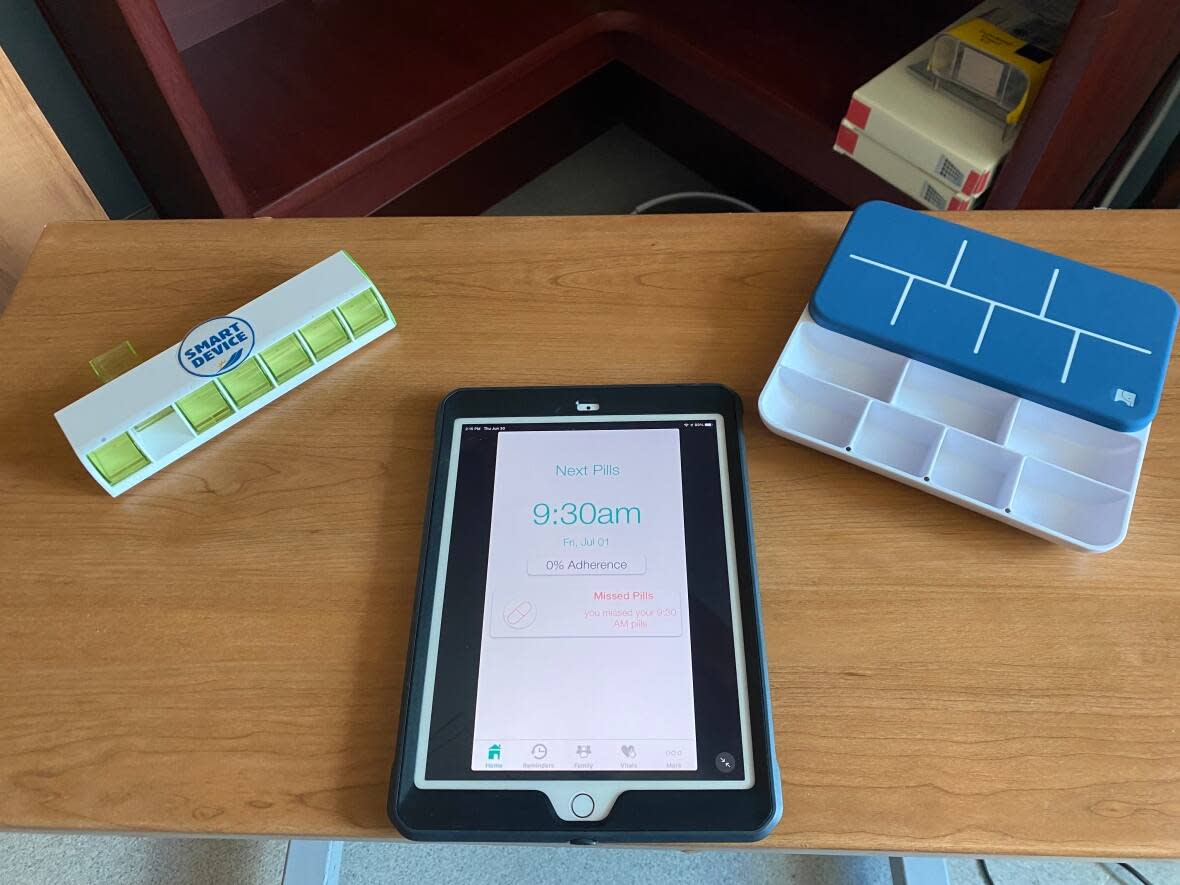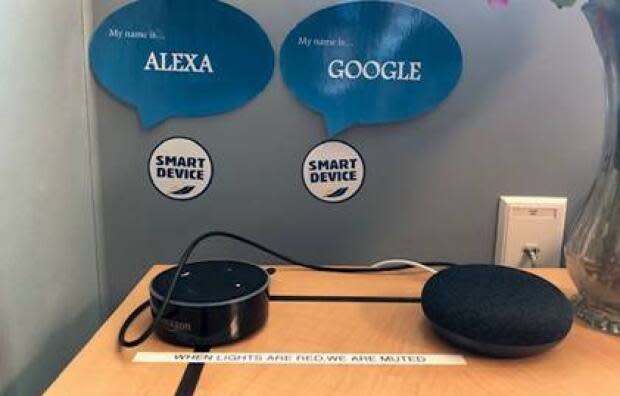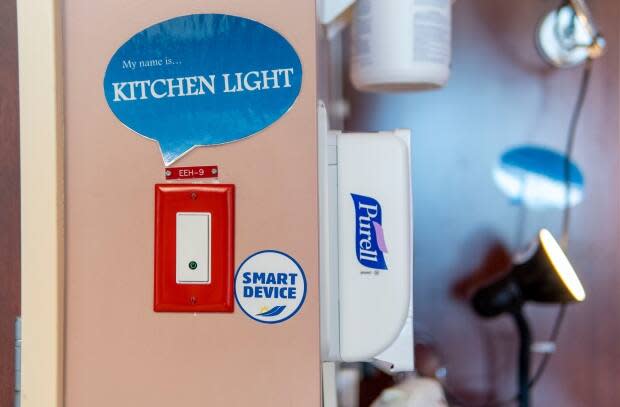Hey Google: how smart technology could help people age in place

If you're having trouble organizing your medication or your smartphone just isn't smart enough to help you answer the door, the Stan Cassidy Centre for Rehabilitation might have the answer.
The Fredericton facility is offering hands-on learning of smart technology to people over the age of 55 and to seniors with caregivers.
The six-week course takes place in the centre's smart home suite, set up like an average apartment, albeit one with a lot of cool, if somewhat confusing, gadgets.

Marla Calder, an occupational therapist and the co-researcher on the project, said this helps participants learn how various items actually work in the bedroom, bathroom, and kitchen.
"We developed hands-on education modules that we could take into the community and teach seniors how to use this technology to gain independence," said Calder. "It's another strategy to hopefully help combat social isolation and for [people] to become more comfortable with technology."

Getting comfortable with tech
Emma Croken, the research coordinator on the project and the developer of the learning modules, said the weekly classes spend the first hour demonstrating how to use the tech, and then there's time to play and get more comfortable using the items.
"They get a chance to learn new things and go home and try them, and then come back the next week and ask questions," said Croken.
The classes cover basic information, such as how to control lighting, window blinds, door locks and security cameras using a smartphone, tablet or smart speakers, such as Amazon's Echo Dot and Google Home.
From there, the lessons moves onto more complex issues, such as how to spot a scam and how to create a strong password.

By 2038, it is expected that 31.3% of the New Brunswick population will be over the age of 65, according to the aging strategy for New Brunswick, but this kind of information is important for people of all ages.
Medication management is crucial to staying independent and aging at home, which is why the team at the Stan Cassidy demonstrate the use of smart pillboxes to track when — and what— pills need to be taken each day.
"Even just using technology to set reminders for medication is something that can really prevent readmission to hospital or really serious health outcomes," said Croken.
She adds that many of the participants in the classes are excited and eager to learn how to use the devices they have at home.
"They have technology at home, a lot of them, and they just don't know where to start. And they're overwhelmed, and they're scared," said Croken. "When [they] come in and play around with our stuff, we can get them out of any bind that they get into."

Emily Read, an assistant professor in UNB's faculty of nursing, said while some older people love technology and are keen to use it, others fear that by choosing something like remote monitoring, they're going to lose out on contact with a personal support worker.
"It's not meant to be a replacement for having home-care. They still want people to come see them. They want physical help and company," said Read.

Barriers to access
However, not everyone is able to access the course in Fredericton because they may not have reliable transportation. And the price of gas can also be a barrier, especially for those travelling from areas outside of the city.
There's a language barrier as well, as the classes are only offered in English right now, and the default language of technology is often English. It can be adjusted but sometimes help is needed, Read said.
Having mainstream technology in the smart home suite is a "huge pro," Calder said, because many older people may already have friends and family who own these items.
"If that's the case, they can be encouraged to just join that ecosystem. And that automatically gives them a support network for that troubleshooting," said Calder.
"It allows a little bit more independence and a little bit more feeling of control over that technology."

 Yahoo Movies
Yahoo Movies 
